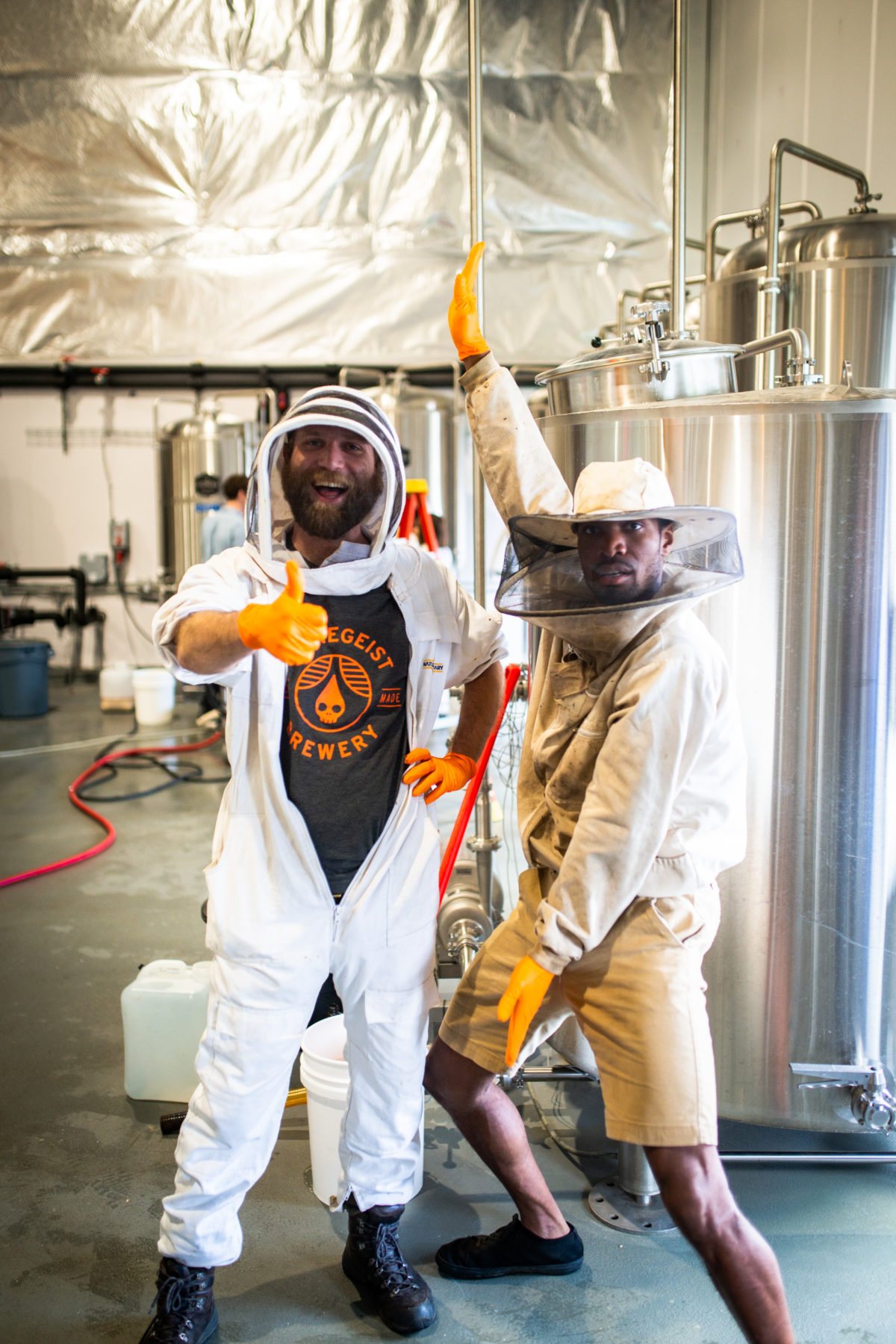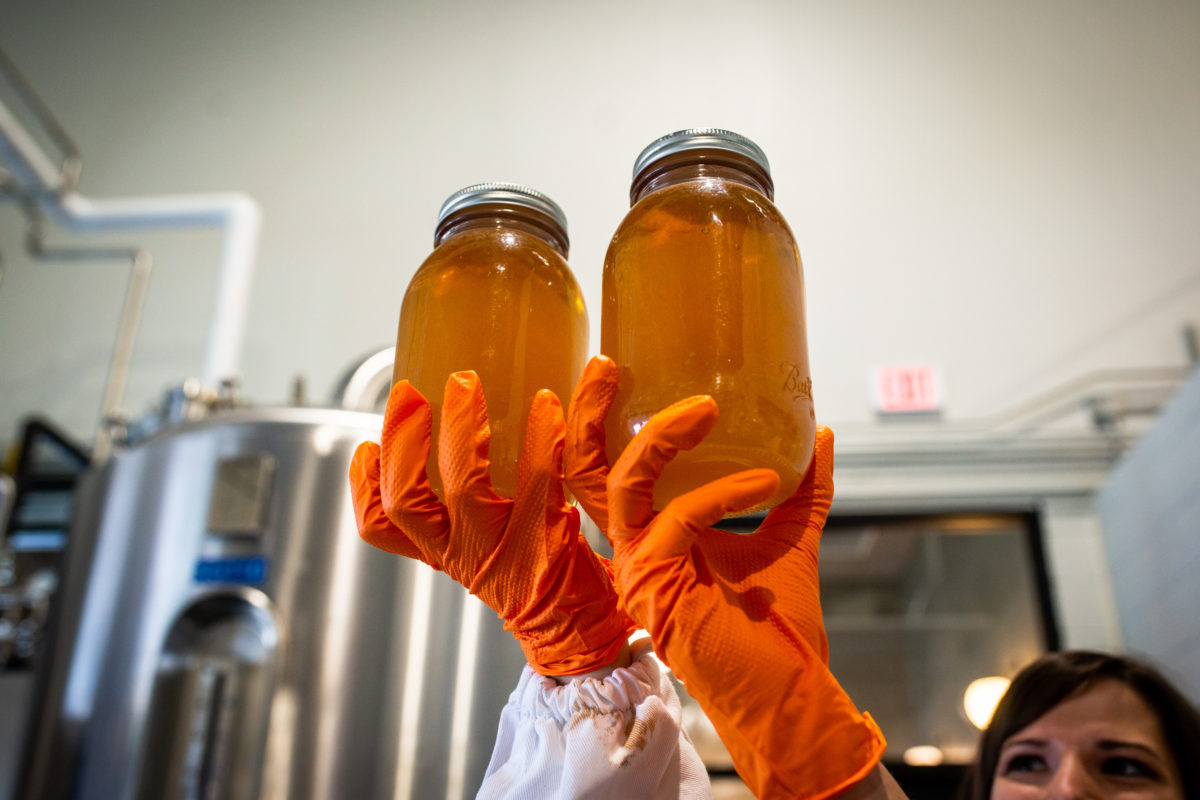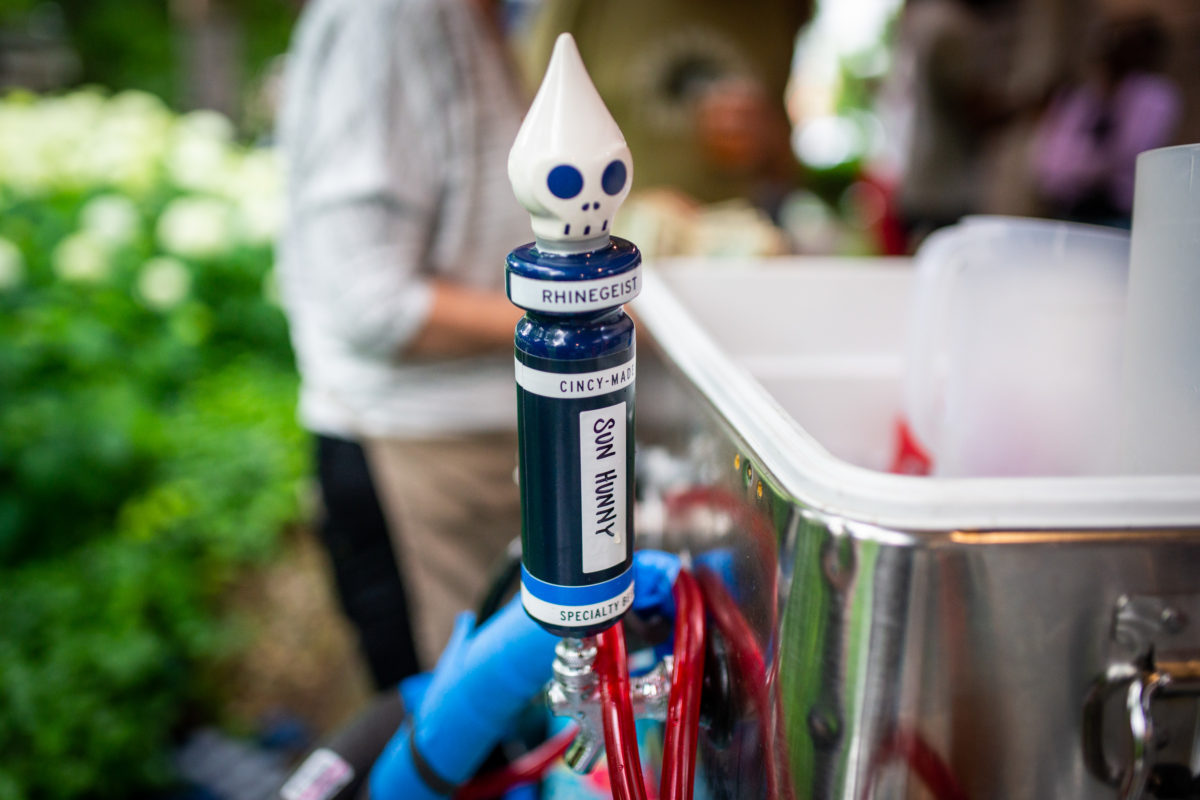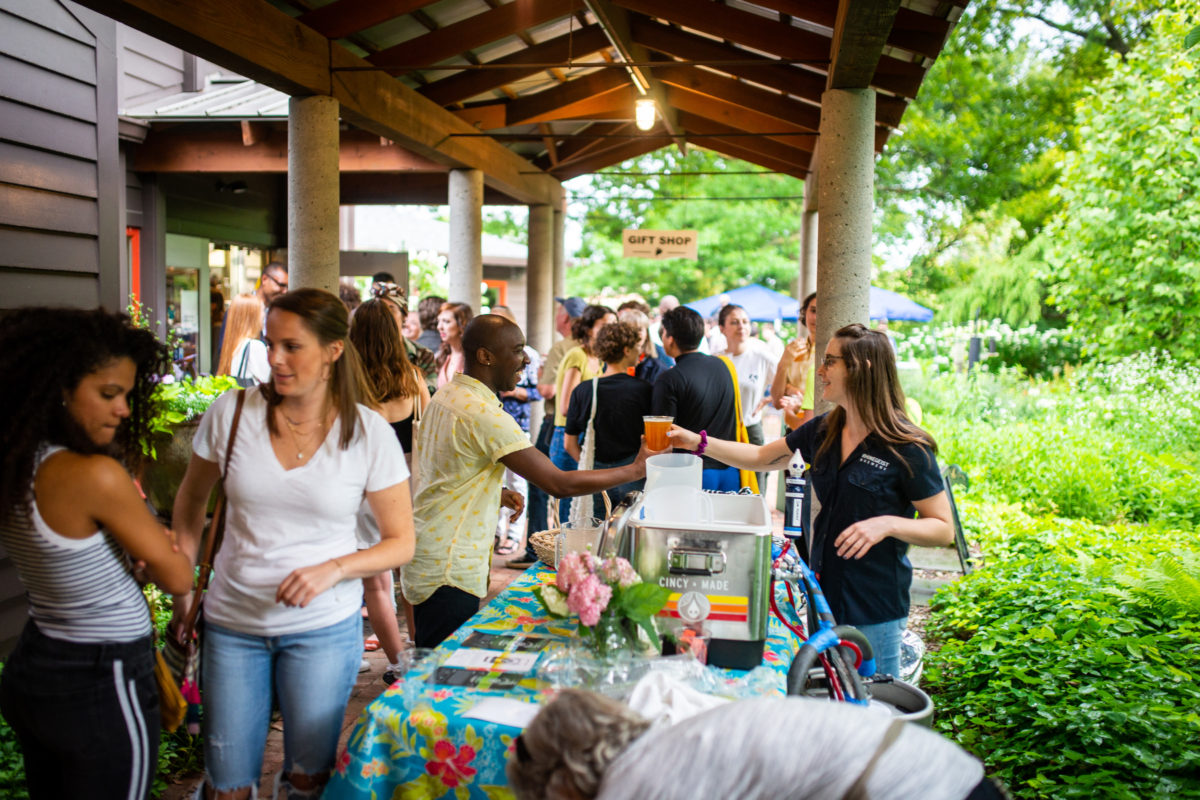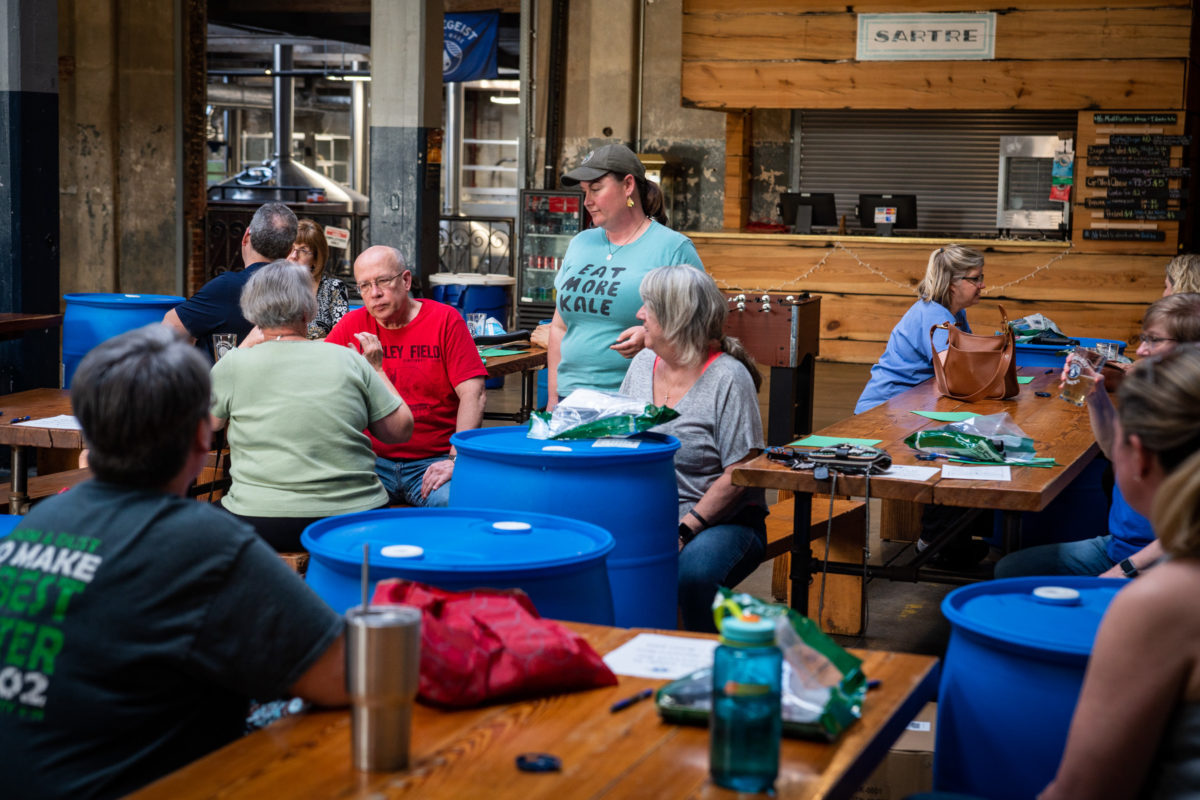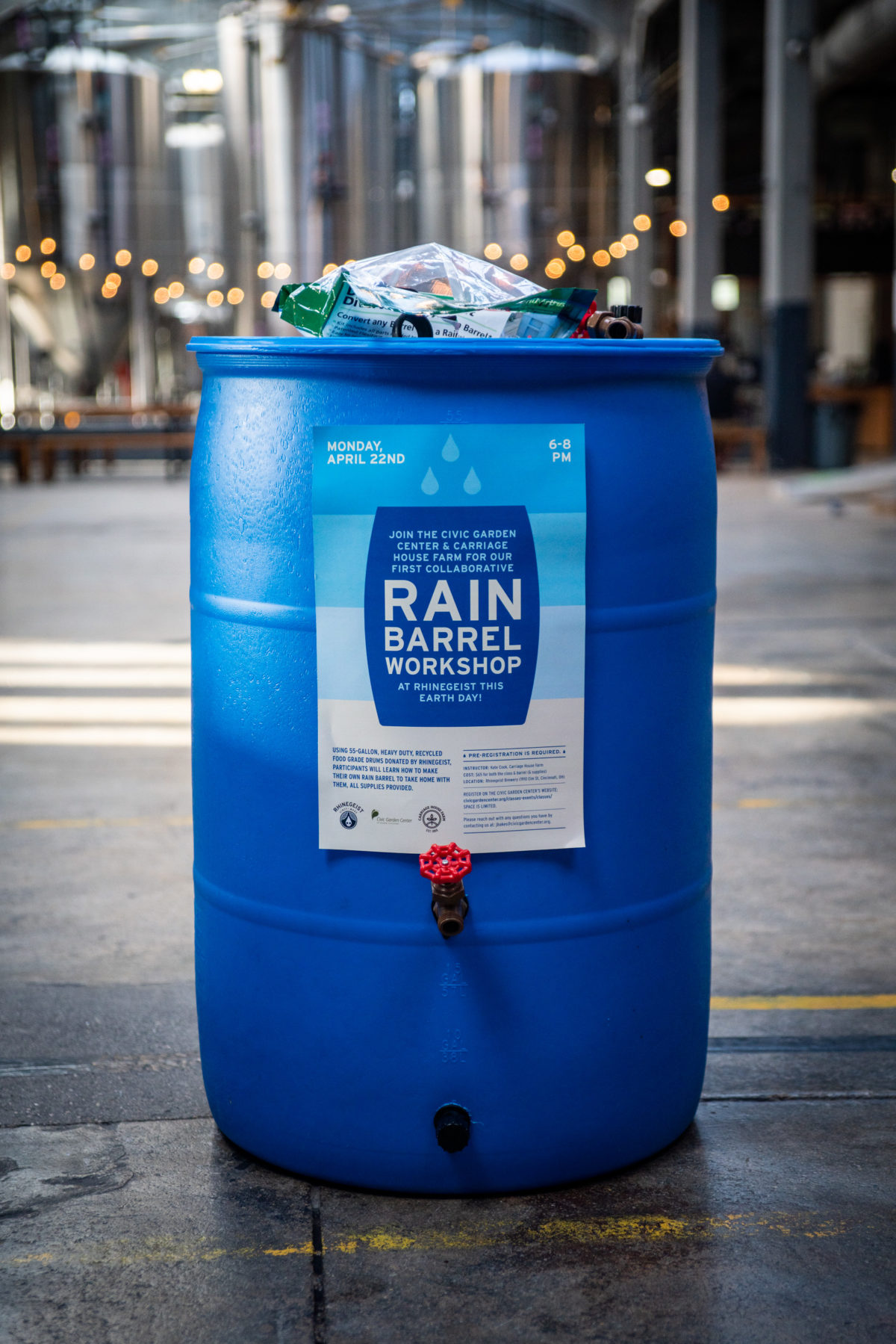Sustainability
We’ve seen a fair share of growth in our short six years as a brewery. As our production scales, so does our waste. Whenever possible, we try to keep our work in-house, but when we can’t do that, we try to keep it local. This stick-to-your-backyard approach has brought us in touch with a bevy of green-thumb neighbors, plugging us into Cincinnati’s vibrant environmental community and allowing us to refine and rethink our approach to sustainability.
Cultivating Our Garden
Tucked away on Reading Road, the Civic Garden Center boasts a modest exterior. What passersby may miss, though, is sixty plus years of community gardening. The CGC has been building gardens, community and, well, community gardens as part of a mission to provide free, accessible education and environmental stewardship. They’re also a longtime partner of the brewery.
“I knew Bob and Bryant before the brewery started actually,” says Karen Kahle, Executive Director of the Center. “I was working for the non-profit that runs Findlay Market. They were going to be our neighbor, so they became part of our craft beer series that first summer they were open.”
A few years after that summer, Karen reached out to our co-founder Bryant about sponsoring an event at the Civic Garden Center, and the relationship grew from there. The CGC and the brewery now collaborate on a host of community initiatives, from donating used can pallet slip sheets (thin, square sheets of cardboard) that act as a compostable weed barrier in garden beds, to DIY rain barrel workshops and, most recently, brewing beer.
Last month, Karen, Brandon Reynolds [of B the Keeper], Kylie Johnson [CGC’s Green Learning Station Coordinator and world-class composting expert] and our own Katie Hoover were at our Spring Grove Ave locale to brew a Honey Blonde Ale. Dressed in full beekeeper attire, Brandon and longtime Geister Peter Mooney hopped on the brew deck. Karen and Kylie added the first two jars of honey to the fermenter and a few weeks later Sun Hunny was kegged and ready to roll.*

Sun Hunny brewing at our Spring Grove Ave locale. From left to right: Kylie, Brandon, Peter, Cole, Nick, Karen, Katie
Branching Out
Our work with the Civic Garden Center has sparked numerous internal projects, and our sustainability efforts have quickly extended beyond the partnership. Janae Chaney, Sorceress of Sustainability, drives much of this work, leveraging her decade-plus of engineering experience to fine-tune our waste reduction.
“Chris [Economos, Rhinegeist Waste Wizard] and I have been assessing our waste streams, seeing what can be eliminated and what can be reused or recycled,” says Janae. “We’re trying to figure out if there’s anything we’re paying people to pick up and take to a landfill or recycle that we could reuse in-house.”
One such item was the large 55-gallon food grade plastic drums used to ship fruit juice. Janae mentioned to Chris that we were paying a company to take them offsite and that we should find a way to reuse them. “I knew from working with CGC and being a manager at Camp Washington Urban Farm in the past that those are really useful,” adds Chris. That’s how we came up with the idea for the rain barrel class.”
Hosted in the taproom with the CGC and led by instructor Kate Cook, the workshop provides participants with a parts kit and walks them through making their own rain barrel with used heavy-duty drums. Not only does the class repurpose what would otherwise get recycled, it’s also an opportunity to extend the CGC’s mission of environmental education, helping folks harvest rainwater for their own gardens.

Kate leading a rain barrel workshop.
When analyzing waste streams, reducing and reusing are the top priorities. The sheer volume of raw materials used in beer production provides several avenues for sustainable reuse.
Spent grain, for example, is taken from our Braukon system and stored in a silo, then taken to a farm in Ohio or neighboring state to be used for animal feed. Spent grain from our taproom JV system–a much smaller operation–goes to our own Doug Weber, who lives on and manages Mud Foot Farm. Doug’s land offers several outlets for organic waste, like composted food scraps from the breakroom.
“Doug also takes spent brewing adjuncts to his farm,” notes Janae. “Just recently, we composted cacao nibs from a couple of beers, lemongrass from Swizzle, and fruit tea from Hang Six, our sixth-anniversary beer.”
Beyond food scraps, the (literal) thousands of pounds of coffee grounds from our break room go to Chris, serving as a nitrogen-rich resource for soil in his garden.
On Herbs
The rooftop has seen its own garden sprout up over the past year. Upcycling a handful of 30-gallon buckets, Chris created a small-scale sanctuary for herbs to be used in our cocktails. Freshly picked mint and basil balance the sweetness in our house made syrups with a more complex, herbacious note, brightening up current offerings like Vineyard Vibes (a vodka cocktail featuring blueberry and basil) and Beer & Loathing (made with a honey and basil simple syrup).
Fresh herbs also give us the chance to iterate recipe ideas.
“Mint is particularly effective and helps pull together the Fruited Ale mojito concepts that we’ve been experimenting with,” notes Aislinn Brown, our Taproom Assistant General Manager. “The ability to garnish cocktails with fresh herbs is both visually striking and adds an awesome aromatic aspect.”
What’s more, a steady supply lets us play around with recipes in different contexts, from fan-favorites like The Wet Bandit (made with Cucumber-infused Gin and Mint) to the lemonade-based mocktails featured at our sixth-anniversary party.
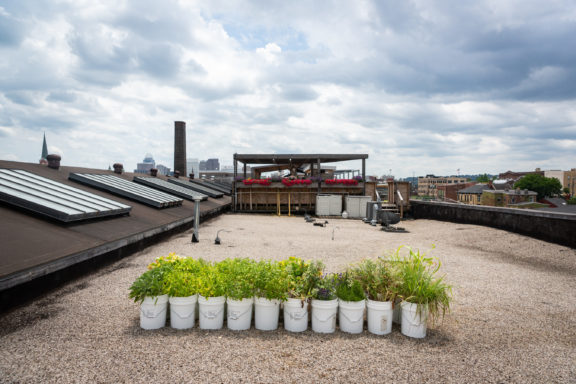
Eco Education
Solid waste management has been an internal focus across departments this year, and Janae plans to highlight new strategies annually.
“The idea is to pick a new strategy every year to focus on,” she elaborates. “This year is solid waste management, like what we’ve done in the breakroom. We’re rolling out internal education later this year. Water reduction could be one for the future. We’re aiming to get people informed and excited about these things.”
Future plans include programs for harder to recycle items, such as light bulbs and batteries.
“We just got a huge win with PakTechs [the hard-plastic tops that keep our four and six packs of cans together],” Janae notes. “That recycling effort is just starting. We found a local solution for it, by partnering with a couple of local recycling companies to ensure the PakTechs get recycled.”
Next time you’re in the taproom, look for our PakTech drop off just to the right of the entrance.
Comprised of recycled #2 high-density polyethylene (rHDPE), PakTechs are not recyclable through curbside recycling (don’t throw them in your Rumpke bin!). While they can be shipped back to their production facility in Oregon to be recycled, working with a local partner eliminates the carbon footprint from shipping them all the way back to the West coast.
Used PakTechs are now collected in our taproom for recycling. The plastic is ground into small pieces, called Regrind, then molded or extruded into new products, from planting pots to composite wood.
Onward and Upward
Beer and cider production holds a host of potential for sustainable innovation. Between our farm-fueled friends at Jackie O’s, the green pioneers at New Belgium, and many, many more breweries, there’s no shortage of industry inspiration. As we grow, our goal is to build off the work of our peers, eliminating and diverting waste wherever possible while keeping a local focus. From PakTech recycling to pH neutralization of wastewater, crosstown collaboration helps stoke the coals in our eco-friendly efforts.
–
*For an in-depth peek into the honey beer brewing, check out this fantastic writeup from City Beat.


